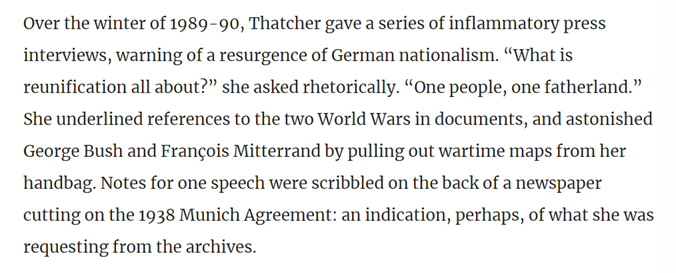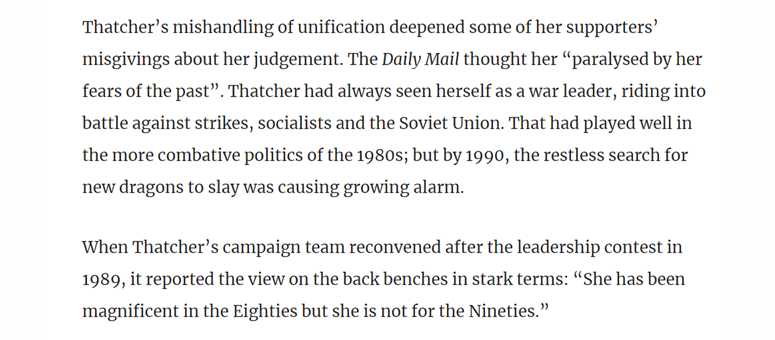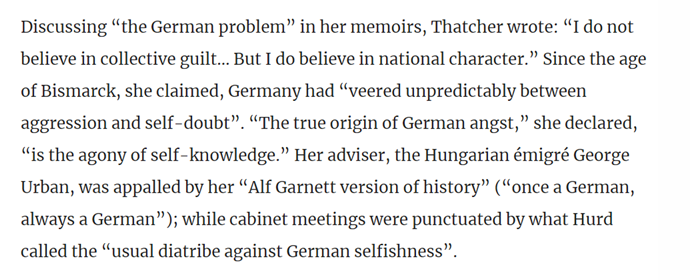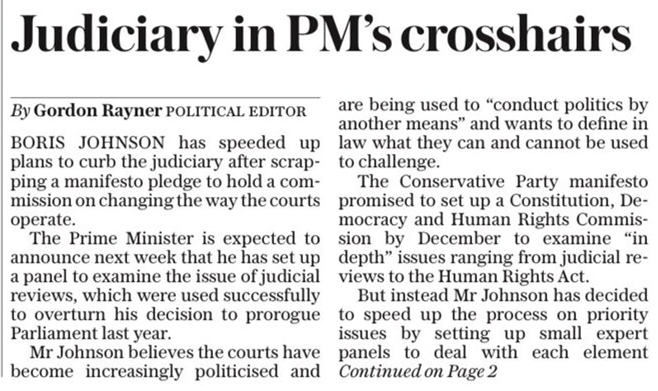
Why was Margaret Thatcher so afraid of German reunification? Why did a lifelong anti-Communist turn to the Soviet Union for support? And what lessons might be learned for Brexit Britain? My latest for the @NewStatesman. newstatesman.com/politics/uk/20…
Britain's tendency to view its relationship with Europe through the lens of the Second World War has a long and undistinguished history. 

In a phone call, Thatcher told President Bush that Germany “was surrounded by countries, most of which it had attacked or occupied”. With Germany reunited, “only the Soviet Union could provide balance in the political equation”. Bush was not impressed. 

Even many on the Right were alarmed by Thatcher's response to reunification, deepening concerns among her party that would prove terminal in 1990. 

As Thatcher reflected in her memoirs: “If there is one instance in which a foreign policy I pursued met with unambiguous failure, it was my policy on German reunification.” Thirty years on, it offers a cautionary tale for British diplomacy today. newstatesman.com/politics/uk/20…
• • •
Missing some Tweet in this thread? You can try to
force a refresh











